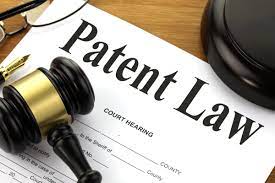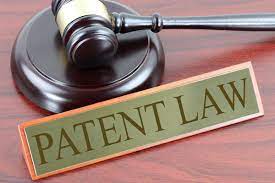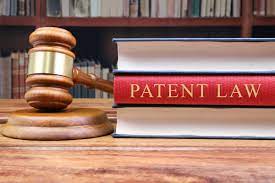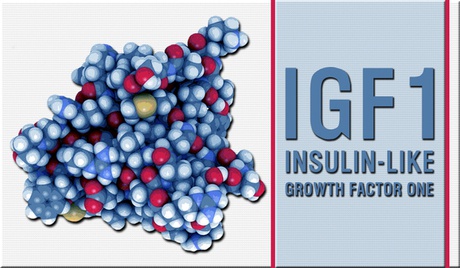The Influence Of Patent Law On Generic And Patented Medications

Potential Changes in Patent Law Line Lobbyist Pockets
A Congressional war is being waged in America's capital regarding whether drug manufacturers should
have the right to retain patents they acquired by breaking the rules or engaging in unscrupulous misrepresentation. This matter of contention has created a chaotic legal climate regarding efforts to reform the existing patent structure.
In several recent court cases, judges have reneged on patents after discovering that the companies that acquired particular patents misled the Patent and Trademark Office to obtain a patent they did not deserve.
Patent law legislation affects a considerable portion of the United States economy, and the current affair has left lobbyists both for and against patent law reform with flush pockets. Over the past fifteen months, two corporate coalitions have been in a fierce battle for the ears of members of Congress, spending a total of $4.3 million dollars making their cases both for and against patent law reform.
New Changes in Patent Law Up for Debate
The changes that are up for debate now represent the most massive potential overhaul in American patent law in the last half-century. Corporate representatives from every significant United States industry have thrown their hats into the ring. Currently, patents give their owners the rights to their invention for a period of up to twenty years.
As a means to defend against illegitimate patents, Federal courts have the jurisdiction to cancel patents if they discover that corporations acquired their patent through nefarious means, such as hiding or misrepresenting data to trick the patent office into issuing an unwarranted patent. If a patent has been found to have been earned in this manner, a federal court can nullify the patent, canceling its validity.
Senior V.P of the pharmaceutical manufacturer Eli Lilly, Robert Armitage, believes this form of nullification is a miscarriage of justice. He compares it to sentencing a person to death for a simple misdemeanor. In his eyes, it's simply a gross misuse of force.
Pharmaceutical companies that deal in Trademarked drugs are lobbying Congress to soften or eliminate this penalty for misconduct as it is currently encoded into law.
Debra Barrett is a primary representative speaking for generic pharmaceutical companies. She is the V.P. Of the American arm of Teva Pharmaceutical, which is the most significant generic medicinal manufacturer on earth.
She argues that the changes lobbied for by the designer pharmaceutical companies would create an unfair playing field in which drug companies that deal primarily in patented drugs would have an unfair advantage, giving them a blank check to deceive the market.
This change in patent law would make it easier for companies to retain ill-gotten patents and prevent useful and lifesaving drugs from reaching the generic market in a time frame supposedly ensured by law.
Consumer Advocates Weigh In
In addition to generic drug companies, consumer advocate organizations such as the American Association of Retired Persons are also concerned about the abuse of patent law, which they feel has the potential to hurt customers. Groups like the AARP are ultimately concerned with ensuring that  drugs enter the generic market promptly.
drugs enter the generic market promptly.
These generic drugs can be up to eighty percent cheaper than their trademarked counterparts. The AARP understands that there are many forms of therapy such as HGH Hormone Replacement Therapy and other health treatments which can potentially provide incredible benefits to seniors, and the earlier that these drugs are made available to the generic market, the more seniors will have the opportunity to utilize such therapies.
Current Activity in the House and Senate
The House of Representatives ultimately sided with the brand-name pharmaceutical manufacturers and passed a bill that would decrease the judicial system's ability to nullify patents for reasons of misconduct.
The Senate has yet to agree on a similar bill presented by the Senate Judiciary Committee, but it is expected that the bill will reach the floor of the Senate in the summer of 2008.
The Recent History of Inequitable Patent Conduct
From 1993 to 2008, the judiciary constructs responsible for patent law cases, known as the U.S. Federal Circuit Court of Appeals, has discovered proof of misleading conduct in at least forty cases brought to trial.
Among these cases were fourteen cases that involved health care and pharmaceutical patents. District court justices have also come to find similar results in an unidentified number of patent law cases in which appeals were not sought.
In these cases, the courts discovered that pharmaceutical manufacturers presented knowingly untrue statements to the United States Patent Office in which they hid contradictory evidence and purposefully explained their experiments selectively inaccurately.
In one particularly telling case, the U.S. Court of Appeals explained that the drug manufacturer Novo Nordisk purposefully lied to the patent office regarding an experiment they claimed to have performed when making the case for their patent for a form of Bio-Identical Human Growth Hormone.
In a similar case, the drug company Pharmacia produced a misleading and inaccurate sworn statement when seeking a patent for a glaucoma drug.
Brand Name Versus Generic
Trademark drug companies accuse generic pharmaceutical manufacturers of being over-litigious, attacking patents haphazardly even if there is no proof of inequity, or unfairly targeting cases in which unintentional but minor mistakes were made in patent acquisition.
The brand-name pharmaceutical manufacturers believe that aggressive claims of iniquity have become a significant hindrance to the regular activity of the patent system. One of the primary interest groups that lobby from this perspective is a trade association known as the Biotechnology Industry Organization.
The BIO represents drug manufacturers that research modern medical treatments such as Testosterone Replacement Therapy and other patented Hormonal Therapies, among other pharmaceuticals.
A Presidential Advisor Weighs In
Harry Manbeck Junior was the commissioner of trademarks and patents under George H.W. Bush. He believes that the current legal construct regarding patent inequity is a needed and sufficient deterrent to prevent unscrupulous patent conduct.
He believes it is essential to recognize the potentially immense value of the patent. He goes on to say that companies have powerful incentives to acquire them and that even with the current nullification structure in place, certain corporations still occasionally make the conscious decision to subvert the law. Mr. Manbeck maintains that the doctrine of inequitable conduct is a necessary construct that helps weed out the existence of ill-gotten patents.
How the Current Law Works
Under existing national regulations, individuals seeking to attain patents are obligated to be honest when interacting with the United States Patent Office. They are required to speak with honesty, good faith, and candor.
 Patent-seekers must tell patent office officials if the invention they present was first used by some other individual or entity or if the invention was previously discovered by some other individual or group.
Patent-seekers must tell patent office officials if the invention they present was first used by some other individual or entity or if the invention was previously discovered by some other individual or group.
They must also disclose whether the product has been put up for sale or delineated previously in some form of publication. If any of those circumstances are true, the patent office may decide that the patent sought is not original enough to be approved.
The Opinion of the Patent Office Professional Union
Although the patent office makes reasonable efforts to uncover existing forms of potential patents, officials can't review all of the relevant information in its entirety due to the volume of such information. For this reason, it is of the utmost importance that applicants be honest and upfront with all of the information that they have unveiled. Robert Budens is the executive officer representing the Patent Office Professional Association.
This organization is a union that represents the needs of over 5,500 patent examiners across the United States. He believes that the patent inequity laws on the books are vitally important to the underlying purpose of the United States Patent Office, which is to protect the intellectual property of individuals who engage in genuine innovative activity. Weak patent inequity laws undermine this underlying purpose.
Some Consider Abuse inherent in the Current System.
On the other hand, the executive representing Eli Lilly, Mr. Armitage, argues that the rules regarding inequitably are being abused by individuals and companies who wish to nullify legitimate patents for their own gain. The doctrine of inequality is being cited with such frequency that it creates an entire set of unintended consequences.
The executive officer of the BIO, James Greenwood, laments the plight of the overwhelmed patent official, claiming that individuals tend to provide mountains of non-vital information to the United States Patent Office to avoid being perceived as hiding any information.
In addition, they do little to explain the information they provide to the patent office because they fear that they will accidentally be misconstrued as having misrepresented the information they provided to the patent office.
In the end, Greenwood claims, the patent examiner is forced to read through reams of information provided by the patent applicant with no guidance whatsoever as a result of the strict laws in place regarding inequitable conduct.
The Modern Surge of Patent Applications
Applications for patents have grown exponentially in the past two decades. A total of 467,243 patents were applied for in the year 2007. This number is twice the number applied for in 1997 and three times for 1997.
The Undersecretary of Intellectual Property Commerce, Jon Dudas, says there aren't more inventions than there were twenty years ago; there are more false leads and unpatentable ideas.
The quality of the applications has dropped precipitously in the last generation.
Over the last forty years, the fraction of applications approved for patent existed in a range of 62%-72%. In the year 2000, the percentage of successful patent applications peaked at 72%, but eight years later, the number of actionable patents dropped to only 43% in the first business quarter of 2008.
Why is Patent Law Important To Technological and Pharmaceutical Companies?
One of the significant reasons that existing patent law is at risk is because technology companies have an innate desire to restrict legal costs and  damage settlements that occur when patent infringement is discovered.
damage settlements that occur when patent infringement is discovered.
Corporations such as Palm and Cisco claim that these legal quarrels drain precious funding that would better serve corporations and Americans if invested in innovation and research.
New Lobbying Firms Arise
A new lobbying firm has merged due to the unified needs of these patent-driven tech companies. This firm is known as the Coalition for Patent Fairness. Over the past five business quarters, the coalition has spent over $2.5 million on a large entourage of lobbyists representing Democrats and Republicans. The primary Democratic representative, Democratic strategist Steven Elmendorf.
The primary Republican representative is Mark Isakowitz.
A similar lobbying group known as the Coalition for Twenty-First Century Patent Reform has also formed, representing fifty corporations that defend their patents and trademarks with zeal. These corporations are classically known for their propensity to file lawsuits to defend their existing patents. This coalition includes biotechnology and pharmaceutical companies such as Pfizer, Merck, Eli Lilly, and Genzyme.
This group of corporations has spent almost $2 million dollars funding lobbyists working in their favor. The biggest recipient of money from the coalition is a legal team administered by Akin Gump.
Patent law plays a significant role in medical and technological innovation, and hopefully, shortly, laws will be both improved and streamlined to optimize the relationship between medical innovation and improved health outcomes for Americans.
Information Collected from http://www.newyorktimes.com.

- 0001 What Is The Difference Between Health And Wellness? [Last Updated On: January 18th, 2025] [Originally Added On: November 26th, 2020]
- 0002 What Is Human Growth Hormone [Last Updated On: January 18th, 2025] [Originally Added On: November 27th, 2020]
- 0003 Types Of Psoriasis Treatment [Last Updated On: January 17th, 2025] [Originally Added On: November 28th, 2020]
- 0004 The Effects Of Elevated Homocysteine Levels On Health And Well Being [Last Updated On: January 16th, 2025] [Originally Added On: November 29th, 2020]
- 0005 Are Hgh Anti-aging Claims Legitimate? [Last Updated On: January 15th, 2025] [Originally Added On: November 30th, 2020]
- 0006 Popular Herbicide Atrazine A Major American Health Risk [Last Updated On: January 16th, 2025] [Originally Added On: December 1st, 2020]
- 0007 How Does Hgh Keep You Young? [Last Updated On: December 10th, 2025] [Originally Added On: December 4th, 2020]
- 0008 Hgh Honesty A Hallmark Of Indians Pitcher Byrds First Book [Last Updated On: December 9th, 2025] [Originally Added On: December 5th, 2020]
- 0009 How Does Growth Hormone Deficiency Testing Work? [Last Updated On: December 8th, 2025] [Originally Added On: December 6th, 2020]
- 0010 Hgh Benefits [Last Updated On: December 6th, 2025] [Originally Added On: December 7th, 2020]
- 0011 Four Best Ways To Boost Hgh Levels [Last Updated On: February 17th, 2025] [Originally Added On: December 8th, 2020]
- 0012 Can Laughter Boost Hgh Production? [Last Updated On: February 19th, 2025] [Originally Added On: December 9th, 2020]
- 0013 Can Hgh Reverse The Damage Of Drug Addiction? [Last Updated On: December 3rd, 2025] [Originally Added On: December 10th, 2020]
- 0014 Bio-identical Hgh And Testosterone For Andropause [Last Updated On: December 2nd, 2025] [Originally Added On: December 11th, 2020]
- 0015 Lifting Weights Increases Growth Hormone and Testosterone! [Last Updated On: February 16th, 2025] [Originally Added On: June 26th, 2021]
- 0016 How Can I Check Out the Credentials of a Physician Before Getting HRT? [Last Updated On: March 8th, 2025] [Originally Added On: February 1st, 2023]
- 0017 What is the Age Profile of Adult-Onset HGH Sufferers? [Last Updated On: May 1st, 2025] [Originally Added On: June 4th, 2023]
- 0018 Introduction: Importance of Checking a Physician's Credentials [Last Updated On: March 4th, 2025] [Originally Added On: March 4th, 2025]
Word Count: 1880






